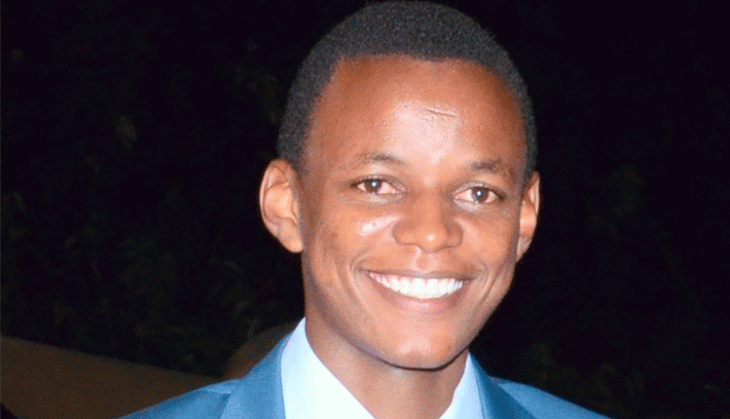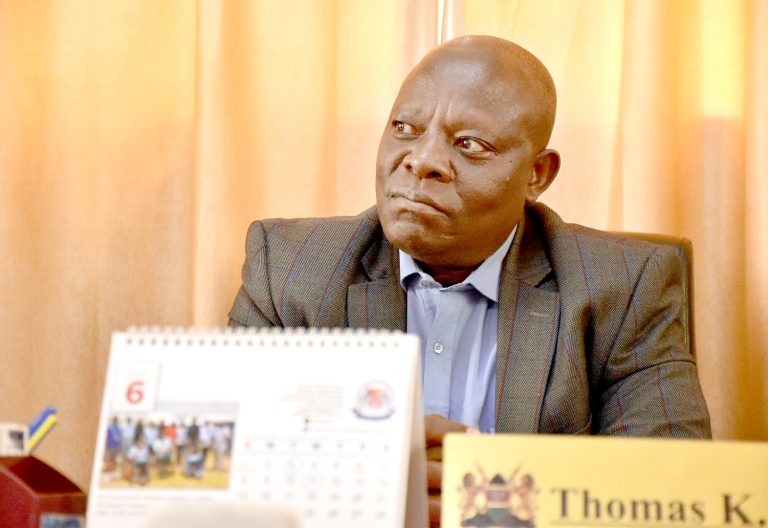Netflix and Kenyan film: Meet Kenyan actor Brian Ogola receives news he had been offered a role as Mutua

In 2018, Kenyan actor Brian Ogola received news he had been offered a role as Mutua, in the film Poachers, which would air on Netflix. This film set up the stage for many more local stories to be told on film exlusively for this movie streaming platform.In its wake, script writers, producers and movie shooting crew have a cause to smile as they flex their muscle to write quality storylines fit to inspire a global audience
“It is a labour of love that was made on a shoe-string budget by a group of passionate and dedicated professionals.
Poacher is a fictional piece that explores perceptions and perspectives of the conservation crisis.
In making this film, we wanted people to understand that poaching exists in the context of much wider trends and pressures, including international criminal networks,” says Brian.
Lately, news of Kenyans in the film industry collaborating or having their work on Netflix have flooded the social media.
For instance, movies 40 Sticks, Disconnect, Just In time are featured on Netflix and recently started shooting a series in Kenya called Country Queen.
Weeks ago, Netflix announced that popular Kenyan movie commentator James Muigai alias DJ Afro Amigo would have a commentary debut after years of putting in so much work in the art.
Using relatable language and dropping slang names, for years, DJ Afro has been consistent in creating funny movie commentaries mainly in both Indian and action movies.
Eddie Butita is also another Kenyan born comedian, actor, script writer, theatre director, emcee, theatre producer, and businessman who also got a deal to script and direct the Swahili version of Upshaws an American sitcom created by Wanda Sykes and Regina Y Hicks.
Butita says he was contacted by Netflix to be their first swahili comedy writer and director.

“I have always wanted to be on Netflix. This year God made it a reality. For the past few months I wrote and directed the Swahili version of Upshaws created by Wanda Sykes, it was a great experience.
The early mornings and late nights together with a team of talented professionals from Hiventy Africa, we successfully brought the script to life and it’s now streaming on Netflix.
If Eddie Butita wrote and directed for Netflix, it means that African comics have a great chance in the global market and we are ready for the world. History has been made” shared Butita on his Instagram page.
New player on the scene
“I think we already have the skills and personnel to make great films with excellent production quality that meet the standards of international Video on Demand (VoD) platforms such as Poacher, Veve, Lusala, Nairobi Half Life, Rafiki, Softie just to mention a few, are all testament to that. I hope ours is the first of many,” Brian says.
When writer, director and producer Neil Schell first arrived to direct in 2010, he observed that the industry comprised of Kenyan producers doing TV series for local national stations or for Multichoice.
“The only movies being done were either extremely low budget or ones that were part of the German funded program by One Fine Day Films.
I believe a significant change happened with the arrival of the ShowMax streamer, an affiliate of Multichoice.
This was a new player on the scene that needed content and, therefore, was open to new ideas and possibilities,” he recalls.
For years, Neil has observed the skill levels of the crew and actors rise over the years as he has interacted with many daily as he directed award winning Kenyan series such as Higher Learning, Saints, Rush, Twisted and Monica.

He is currently writing the feature films White Gold and Injustice, which he will be directing in 2022.
Financial capacity
“Kenyan crews have been keeping up with the technical advances in the industry.
When Netflix arrived to the continent they openly asked for feature films. This was a new thing.
I have also observed the Kenya Film Commission getting more involved with improving the industry,” he notes.
Though he has not worked directly with Netflix directly, but with Kenyans who now work for Netflix in Amsterdam, Neil understands what Netflix is currently searching for.
“Netflix wants local stories that can easily be watched and enjoyed worldwide.
For example, Money Heist and Squid Game are series made in their local languages, but have been enjoyed the world over.
No superstars in the cast, no English language, just great stories and extremely high production values.
I would say that where Kenya and the industry must improve is in the writing. That’s where it all starts.
Without excellent writing you can’t make an excellent movie or show. Developing and educating writers is vital.
With great writers in place, and improved budgets for the industry, by not compromising on quality, we can expand at a rapid rate,” Neil adds.
Film maker, actor and director, Gitura-Kamau is happy with this shift and the challenges in the Kenyan film industry that it addresses.
“The film industry has come a long way in Kenya and I’m glad that it has made great strides in the last couple of years.
It’s unfortunate that there have been numerous gatekeepers who have frustrated the growth further by employing corrupt practices to have your work aired on local stations. That’s notwithstanding great quality of work provided,” he observes.
One of the challenges facing film and TV production is having the financial capacity to produce quality film.
Gitura who is currently working on a feature film (in writing and pre-production stage) as well as pitching some of the works produced during the pandemic lockdown, notes that the entry of Netflix and other international players requires quality content and, which the Kenyan producers are willing to provide.
“Film and television production is not a cheap venture. To provide quality content, a lot has to be put in.
It’s never a “point the camera and shoot” scenario. That’s what some or (most) commissioning editors never appreciate,” he notes.
Changing trends
In addition, the whole industry has for long been looked at as a secondary contributor to entertainment, yet it holds immense possibilities in the development of a society.
This has consequently resulted in an unfortunate hesitation in vibrant funding to make this medium an integral component for education and entertainment.
“The entry of Netflix is welcome because they look at the process of production holistically.
They provide incentives to make stories that are sound, credible and relevant.
They equip you with necessary info for you to engage on an international platform. That’s the kind of encouragement every producer wants,” he adds.
While Kenyan artists have began embracing the spirit of collaboration lately, Gitura advices that more of this spirit is required.
“We also need to keep up with the changing trends in the industry. I’m glad the Kenya Film Commission and other stakeholders are currently doing a good job at this.
Bearing in mind the challenges that the pandemic brought about, the future is promising.
I would love to see more of our own local content on our screens. Kenyan producers are creative and capable of churning out content that could match any international comparison.
It saddens me that we still have hundreds of hours of soaps that come from Latin America and South Central Asia,” he says.
Come of age
Simon Mwaura, a content aggregator at Sirgie limited believes that the film industry has come of age by this shift.
“We celebrate the milestone accomplishments from our gallant producers who have perfected the art of storytelling and are now competing in the international film arena.
The leading global film festivals recognising, nominating can attest this and awarding a handful of Kenyan produced films,” he notes.
Mwaura adds that the collaboration in acquisition of Kenyan produced films has steered an inspiration to the creative industry that will in the long run influence the creative economy to thrive and present employment opportunities to our younger population.
“The traditional model of content distribution has primarily been on cinemas and in broadcast, however there has been a paradigm shift in behaviour change in entertainment where as the majority consumers are now adapting to new technologies in the digital age.
Vod and svod is the next frontier and with the high penetration of smart devices and internet connectivity content can be consumed on the go unlike before,” he observes.
He adds that the industry requires some policy research on statistics and simultaneous capacity building to facilitate a continuous production of content to meet the huge demand created by the digital era that is limitless.
“Netflix being a global brand, their philosophy is providing an enabling environment of entertainment for general view thus beneficiaries of the caliber looking to work with Netflix should first understand the global representation of the diverse cultures,” he says in closing.












